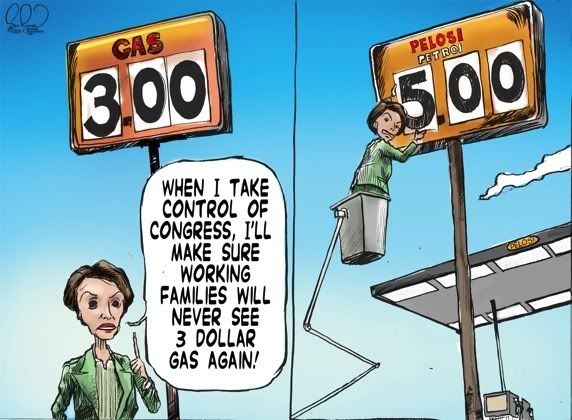Pelosi is the perfect example of how democrats just don't get it when it comes to oil and energy. This coming from the woman who demanded a bigger plane for her travel.
“Making gasoline more affordable would be the exact opposite of what we need to do,” Pelosi asserted. “We need to wean the country off of its dependence on fossil fuels. We can only do this if we discourage Americans’ love affair with their cars and put an end to the frenzy of excessive and senseless driving.”
She also keeps complaining that Bush will open the oil reserves so she can get her 3 days worth of oil, but opening up our resources is wrong. She has a pair big enough to tell Americans they should end their "love affair" with cars, but yet demand she gets a bigger jet for her use.
